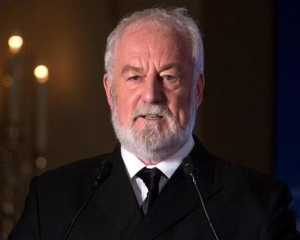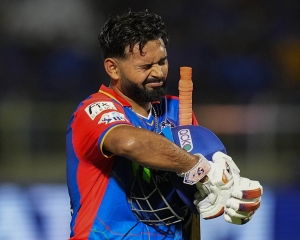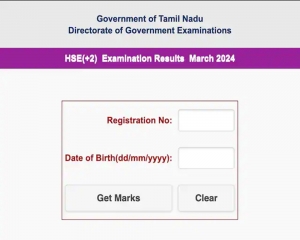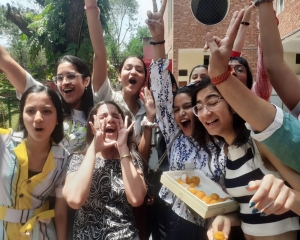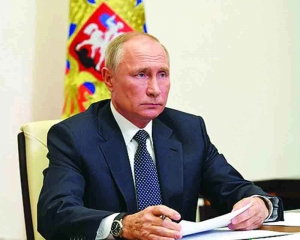The National Education Policy recognises that socio-economic marginalisation and exclusion is multidimensional and that children from socio-economically disadvantaged groups have been underrepresented in the education system. The NEP lays foundation to overcome the malady. However, the implementation of the provisions will essentially depend upon a harmonious cooperation between the units of the federal structure
Declining gross enrolment ratio at the primary and secondary stages has proven to be an indomitable challenge for India’s education system. Close to 10 per cent of the enrolled children do not complete their elementary education. Of those who do, nearly 30 per cent drop out after Class VI and of the remaining 44 per cent drop out before Class VIII. This means that more than three crore children in the 6-17 years age group are excluded from the education system. A large majority of them are children from marginalised communities, including Scheduled Castes, Scheduled Tribes, religious minority groups and differently abled children. Girls are the worst affected across these categories and literacy data from several reports have underlined this.
As per the 75th round of NSSO data, female literacy rate in India was 70.3 per cent compared to 84.7 per cent for males among people of 7 years and above. The provision to create a “Gender-Inclusion fund” for capacity building towards providing equitable and quality education to all girls and transgender students is a historic step towards a more inclusive learning environment.
A vast body of international research has conclusively shown that 90 per cent of brain development in a child occurs before the age of five.
Modifying the existing 10+2 structure of school education and introducing the Early Childhood Care and Education (ECCE) programme, NEP 2020 has responded to this impending need with a strong commitment to universalising pre-school foundational learning. The NEP envisions that every child under the age of five will be included in foundational learning process. A large percentage of children entering primary education in India, especially in Government schools, do not possess the ability to read and comprehend basic texts, meaning that they are not school-ready.
Pre-school foundational learning will ensure that children are school ready as they enter grade 1 and will significantly reduce the number of dropouts at the primary school level. Many research studies have shown that pre-primary education is of tremendous importance as it gives children a solid foundation to begin an efficient and more productive educational future. While children from privileged and mostly urban households had the benefit of attending pre-schools, children from marginalised families, rural and remote areas were left in the lurch. To mitigate the exclusion of such children, the NEP also commits to give priority to areas that are particularly socio-economically disadvantaged.
Setting up of the National Mission on Foundational Literacy and Numeracy to achieve universal foundational literacy by 2025 will ensure a focussed and time-bound implementation of the mentioned strategies.
Foundational education in a child’s mother tongue has been recommended by several research studies. UNICEF reports from across the world support mother tongue education for a more efficient and inclusive learning environment. Children learn best if they learn in their mother tongue in the early years. The challenge of coping with a language that is not used in the households is greater for children from marginalised communities, Scheduled Tribes in particular. Those who can afford supplementary training in an unfamiliar language gain a significant advantage over their poorer counterparts.
The NEP recommends that the medium of instruction until at least class five to be in the local language/mother tongue/home language. This initiative would be a great leveller for all those children; besides improving their learning and reducing the dropout ratio after class five.
Offering a wide range of choices of subjects to secondary school students would lead to a more holistic learning environment for the children. Streams like music and arts have been undervalued in the educational system for far too long. Although private educational institutions have realised their importance making them integral to their curriculum, government schools have continued to neglect them, dubbing them as “extra-curricular”. Underprivileged children in government schools have not been exposed to a whole new world.
The NEP has also recognised the huge educational potential of (Anganwadi) AWCs in India. There are close to 14 lakh AWCs in India but they have been predominantly looked at as nutritional supplement centres till now. This policy realises their potential as foundational teaching spaces. As AWC are largely used by children from marginalised communities, envisaging them as centres for foundational learning is a significant step towards a more inclusive pre-school education. Scaling up the infrastructure of AWC would yield dual results: Improved nutritional status of children and providing them with foundational learning.
Research shows that undernutrition is one of the biggest impediments in the path towards education of children from underprivileged households. Inadequate food and lack of nutrition not only compromises their immunity but also impairs their learning ability. Several studies have found clear association between school meals and educational performance. Introduction of breakfast in schools is a great step towards eliminating classroom hunger and universalisation of primary education.
A vision of an inclusive education system towards achieving universal education is one of the biggest highlights of the NEP. It sets the goal to achieve 100 per cent gross enrolment ratio in preschool to secondary level by 2030. Having a cohort of well-trained teachers is a pre-condition for achieving this. Other than the obvious measures of improving teachers training and increase in recruitments, NEP recognised critical gaps like urban-rural divide in the availability of teachers.
Recruiting teachers from local areas, providing them housing facilities and discouraging frequent transfers would lead to a more sustainable teacher-student relationship in rural areas. Making a provision for “special educators” for differently-abled children at the middle and secondary level is another novel step towards a more inclusive and equitable education system. Providing barrier free access to school infrastructure, providing them with appropriate technology assistance tool and creation of accommodation facilities for these children on school premises are all steps recommended in the policy towards creating an enabling ecosystem for differently-abled children.
The NEP recognises that socio-economic marginalisation and exclusion is multidimensional and that children from socio-economically disadvantaged groups (SEDGs) have been underrepresented in the education system. Categorising their exclusion on the lines of gender, socio-cultural and geographical identities, disabilities and vulnerabilities that include victims of trafficking, orphans, child beggars in urban areas, and the urban poor, the NEP has broadened the framework of looking at exclusion from a class-caste-gender lens. The recommendation to create “special education zones”, areas with large presence of SEDGs, would ensure inclusive actions in most of these areas.
The NEP substantially lays the critical foundation for a more inclusive school education. However, there are innumerable challenges ahead in terms of its implementation. And the implementation of the provisions will essentially depend upon a harmonious cooperation between the units of the federal structure.
(The writer is an Assistant Professor at the Centre for the Study of Social Exclusion and Inclusive Policy, JNU, Delhi)













